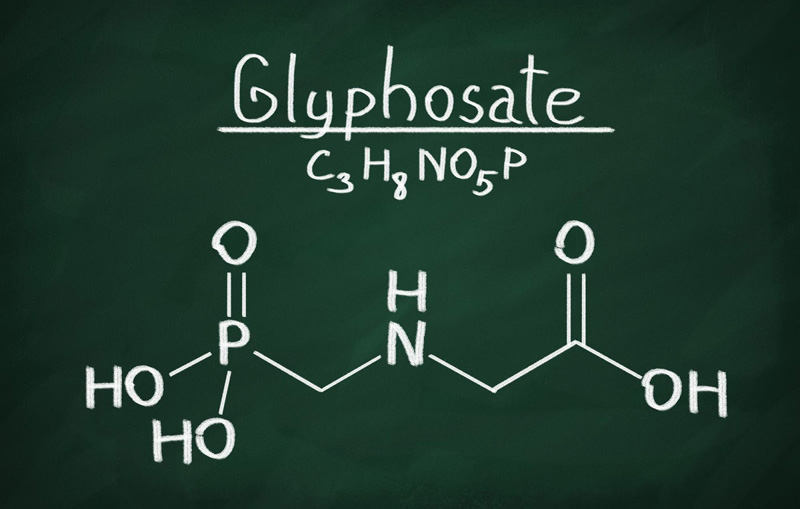The recent $2 billion jury verdict against Monsanto may be a clear indication that Bayer will likely settle the remaining 13,000 cases claiming the active ingredient in Roundup, glyphosate, causes aggressive blood and bone cancer.

French language sign playing with the word “Mort” (Dead) to ‘rename’ Monsanto
Attorney Brian Mahany is convinced that numerous settlements will follow and has good evidence to back up his claim. An active participant in the recent spate of Roundup cancer lawsuits, he is well placed to interpret the verdict.
Global Monsanto/Bayer Settlement in The Works
According to Mahany, the court quietly postponed the bellwether trial scheduled to begin on May 20th. Instead, the court noted an upcoming “confidential mediation.”
“Monsanto is telling the public and press that it will continue to fight,” said Mahany. “The court records show otherwise. That the parties are going to mediate means only one thing. Monsanto is ready to throw in the towel. Combine this week’s jury verdict of $2 billion with recent verdicts of $289 million and $80 million, and it’s game over for Bayer.”
Mahany also said, “Judge Chhabria vacated a trial date of what would have been the next bellwether trial. That is a sure sign that Bayer and Monsanto are not expecting a victory and instead are trying to prevent a fourth and possibly fatal trial blow. Already the company has lost $30 billion in market value. They can’t sustain another major defeat.”
According to many court watchers, the $2 billion verdict could not have come at a worse time for the company. Last month the company had its annual shareholder meeting in Germany. Stockholders handed management a massive no-confidence vote.
A Perfect Roundup-Lawsuit Storm
Bayer acquired Monsanto last year. The company is currently facing an estimated 13,400 lawsuits in the United States. Most of the complaints allege users of Roundup were subsequently diagnosed with non-Hodgkins lymphoma, an aggressive form of cancer. Roundup and its active ingredient glyphosate have also been linked to other forms of cancer, including myeloma and leukemia.
The $2 billion verdict resolves the case of Alva and Alberta Pilliod from Livermore, who are both suffering from non-Hodgkin’s lymphoma in connection with their use of Roundup for several decades. Bayer/Monsanto said in a statement that it is going to appeal the verdict and continue to fight the thousands of Roundup lawsuits it’s facing, but Mahany believes the company has already begun the process of exploring settlement.
Cancer Victims Must Act Quickly
“With a global settlement probably in the works, anyone who has cancer and was exposed to Roundup or who recently lost a loved one needs to step forward,” Mahany advises. “If Bayer can work out a settlement, they can probably survive but if I was suffering from lymphoma, I wouldn’t be waiting much longer before filing a lawsuit.”
Monsanto/Bayer’s Web of Bribes

While company officials argue that Roundup is necessary to feed the growing world population, former Greenpeace official Franco Segesso said in an investigative TV news report that cultivating crops without using Roundup is both safer and cheaper. According to Segesso, Monsanto/Bayer makes farmers dependent on Roundup, so they need more and more of it. Because the company monopolizes the production of the weed killers farmers need, it can set prices at will, he argues. In his native Argentina, Segesso explains, several of the government officials in charge of regulating the sector have strong ties to Monsanto.
In the U.S., the situation is not very different. A recent probe by CNN reporters shed light on Monsanto’s carnal relations with the EPA. In one of the most shocking documents revealed, a Monsanto executive quoted an EPA official as saying, "If I can kill this I should get a medal," in reference to a planned government review of glyphosate.
On April 30, 2019, Trump’s EPA, gave a crucial endorsement to Monsanto/Bayer. "EPA continues to find that there are no risks to public health when glyphosate is used in accordance with its current label and that glyphosate is not a carcinogen," the agency said in a statement. Weeks later, the jury in the Pilliod case would rather disagree with the environmental authority.
The U.S. appears to be more permissive than the European Union when it comes to glyphosate. Although the EU has failed to ban glyphosate altogether, European countries generally have a more restrictive approach than the EPA.
For instance, a few years ago, Germany blocked honey imports from Uruguay because the product contained traces of Roundup, as a result of contamination from crops near the beehives. The Uruguayan honey is still happily received in the U.S.
Spokespersons for Monsanto frequently claim that there are hundreds of studies proving glyphosate is not carcinogenic. However, environmentalists argue that the bulk of those studies have been funded by none other than Monsanto-Bayer. In 2015, the International Agency for Research on Cancer stated that glyphosate is a "probable human carcinogen."
When news of the recent $2 billion verdict broke, Bayer shares fell by 5 percent, hitting a seven-year low. Although the punitive damages are likely to be reduced after the company appeals, markets have taken the case’s resolution as an indication that there might be more unfavorable verdicts and settlements to follow.
According to the Wall Street Journal, “Bayer is worth less today than the $63 billion it paid for Monsanto roughly a year ago. Since the Monsanto deal closed, Bayer’s market capitalization has shrunk by more than 40 percent to roughly $59.13 billion. Worried that liabilities from the allegedly carcinogenic weedkiller are going to rise, investors have abandoned the stock, sending the shares into a downward spiral.”
These bad news for shareholders may soon become good news for many a Roundup-cancer plaintiffs, according to Mahany.
Need more information? Check out Mahany Law’s Roundup cancer victims claims page. Ready to see if you have a case? Contact him online, by email [hidden email] or by phone 414-704-6731 (direct).